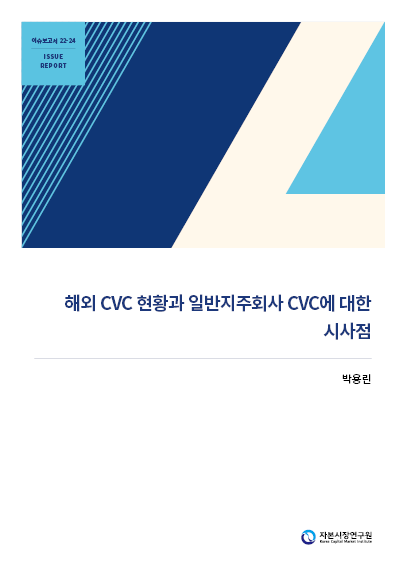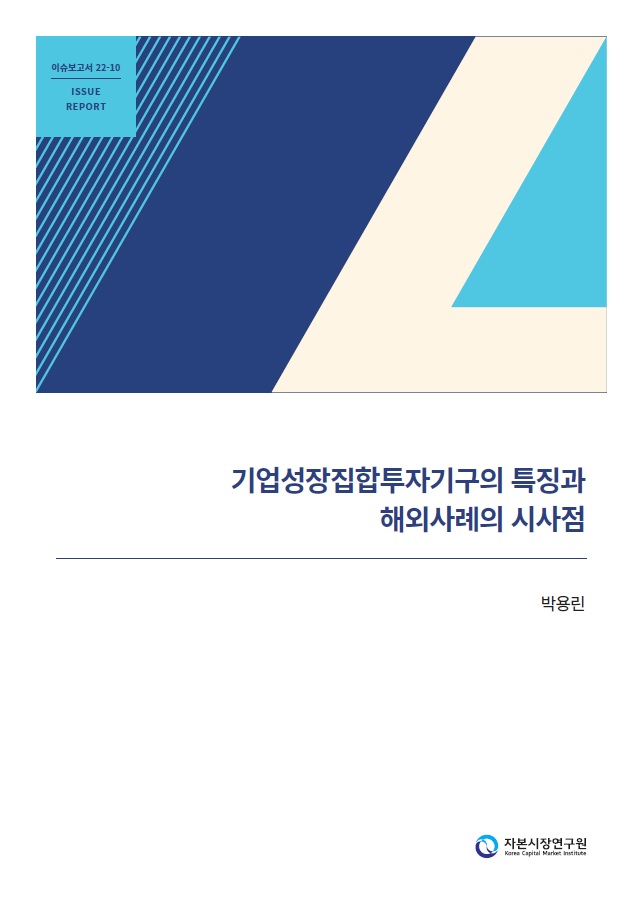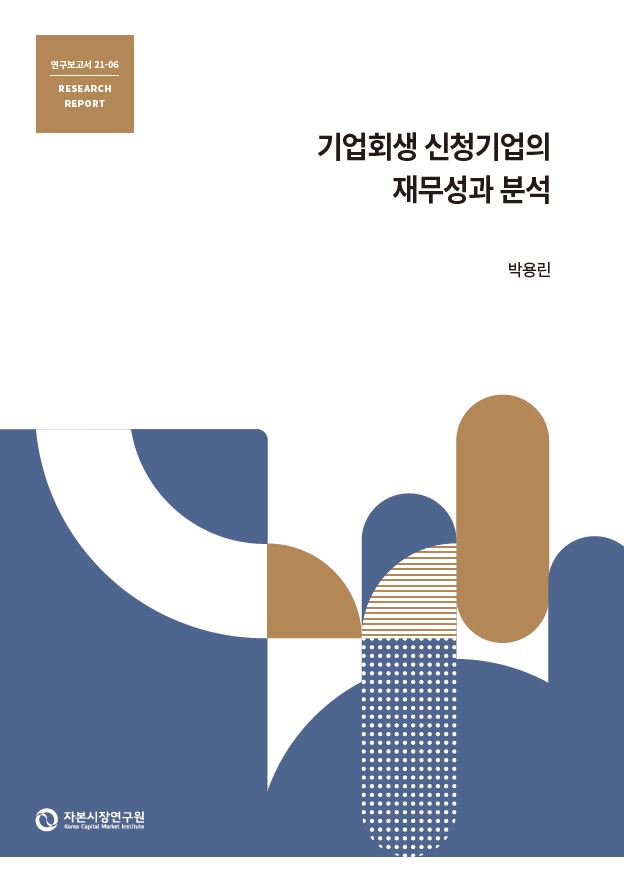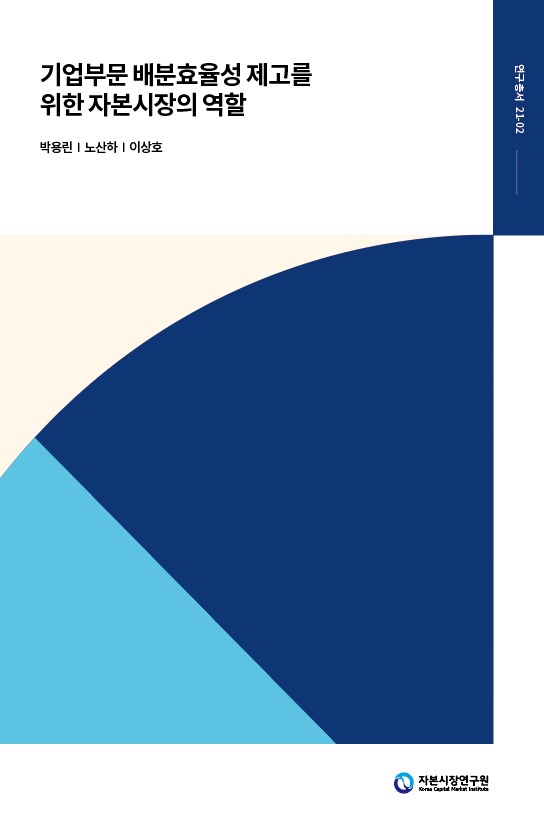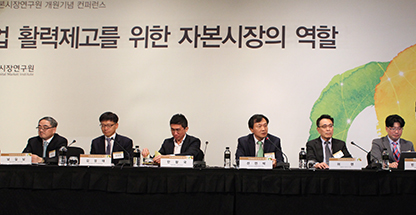Research Staff
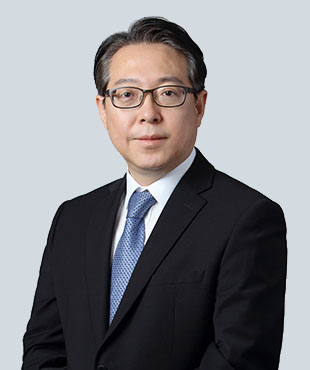
Profile
- TEL
- 82-2-3771-0830
- yrpark@kcmi.re.kr
- Education
- Ph.D. Finance, University of California, Irvine, June 2009
- M.S. Finance, University of Illinois, Urbana-Champaigne, June 2003
- B.A. Economics, Seoul National University, February 1989
- Professional Experience
- Apr. 2018 ~ Corporate Restructuring Forum, Steering Committee Member
- Apr. 2018 Chair of Selection Committee for SME-Designated IBs
- Mar. 2016 Chair of Selection Committee for SME-Designated IBs
- Jan. 2017 ~ Dec. 2017 On Leave (Cal State Univ. Long Beach, US)
- Oct. 2016 Prime Minister’s Prize for Financial Innovation, The 1st
- Finance Day, sponsored by Financial Services Commission
- Jan. 2013 ~ Dec. 2016 Korea Capital Market Institute, Head of Financial Services
- Dept.
- May. 2011 ~ Dec. 2012 Korea Capital Market Institute, Head of Corporate Policy
- Dept.
- Mar. 2010 ~ Feb. 2012 Korea Securities Finance Corp, Investment Advisory
- Committee member
- Aug. 2009 ~ Korea Capital Market Institute, Research Fellow
- Nov. 2000 ~ May. 2002 Good Morning Shinhan Securities, MA Team
- Jul. 1997 ~ Mar. 2000 ING Baring Securities, Corporate Finance
- Sep. 1994 ~ Jun. 1997 Monitor Company, Consultant
Publications
Opinion
Seminar Presentation
Research performance
KCMI Research Paper
1. Private Capital Markets in Korea (2017, with Drs. J. M. Kim, J. W. Nam, J. M. Jang, C. M. Chun)
2. Potential Improvement in the Capital Regulation for Korean Securities Firms (2017, with Dr. S. H. Lee)
3. The Effect of the Consolidation of Korean Securities Companies on Financial Performance (2017)
4. Contestability of Securities Industry in Korea and Potential for Structural Change (2016, with Dr. J. H. Kwon)
5. Private Secondary Market Platforms for Non-reporting Corporations’ Equities in the US and Their Implications (2015, with Drs. J. W. Nam, and C. M. Chun)
6. Overview of Overseas Government Venture Capital Programs and Their Implications (2015, with Dr. J. M. Kim)
7. Business Environment Change in Korean Securities Industry and Its Strategic Response (2013, with Drs. S. H. Lee, J. M. Jang, S. Y. Choi)
8. Investment Strategies of Global Private Equity Funds (2012, with Dr. C. M. Chun)
9. Global MA Market Prospect and Its Implications (2011)
Book Chapter
1. Angel Capital, the First Source of Outside Funding, Chapter 5 in Water Is Not Flowing on the Land of New Industries, co-authored with 15 other professionals (Korean) (2012)
2. Angel Capital in Foreign Markets (Chapter 3), Angel Investment Ecosystem (Chapter 4), in Angel Investing (Korean) (2012)
3. Investment, Capital Formation and Cost of Capital, Chapter 5 in Asia Capital Market Initiative: Development and Integration), sponsored by Asia Development Bank and KCMI (English) (2012)
Reports for Commissioned Projects, Reports for Policy Recommendations
1. Measures to Enhance Efficiency in Crowdfunding Market in Korea (January 2018 ~ April 2018)
2. Policy Direction to Improvement Leverage Ratio Regulation for Financial Investment Companies (April 2016 ~ November 2016)
3. Overview of Korean PEF Market and Future Direction (Project Manager, Korea Private Equity Manager Council, February 2015 ~ June 2015)
4. Development of Key Performance Indicators for the Growth Ladder Fund (Project Manager, Korea Growth Investment Corp. November 2014 ~ February 2015)
5. Expanding the Role of Capital Markets to Promote Creative Economy (Project Manager, Office of the President, September 2014 ~ December 2014)
6. Impact Analysis of the 2013 Policy for the Promotion of Startup Funding Ecosystem in Korea (Project Manager, Korea Institute of Startup Entrepreneurship Development, May 2014 ~ July 2014)
7. Role of Capital Markets for the Promotion of Startup Ecosystem in Korea (Project Manager, Korea Institute of Startup Entrepreneurship Development, July 2013 ~ September 2013)
8. Promotion of Equity Investment in SMEs Associated with Credit Guarantee Programs (Project Manager, Korea Credit Guarantee Fund, July 2013 ~ December 2013)
9. Effective Management of Korean Export Credit Agencies (Member, Korea Export Import Bank, July 2012 ~ December 2012)
10. Research on the Promotion of Private Secondary Market for VC Investments (Project Manager, Korea Venture Investment Corporation, February 2012 ~ September 2012)
11. Promotion of MA Market for Innovative SMEs in Korea (Project Manager, Korea Venture Investment Association, February 2012 ~ September 2012)
12. Policies on the Capital Markets from the Perspective of SMEs and Middle Market Companies (Ministry of Knowledge and Economy, December 2011 ~ March 2012)
13. Research on Promoting Investment Activities of Business Angels (Project Manager, Korea Venture Capital Association, February 2011 ~ April 2011)
14. Research on Promoting Exit Markets for Investments in Innovative SMEs (Project Manager, Small Medium Business Corp, August 2010 ~ December 2010)
15. Korea Exchanges Strategy in Response to Changes in Global Capital Markets Environment (Member, Korea Exchange, September 2010 ~ December 2010)
16. Asian Capital Markets Entry Strategy for Korea Development Bank (Member, Korea Development Bank, April 2010 ~ October 2010)
17. Research on Global Discussions about Financial Transactions Taxes (Member, G-20 Summit Preparation Committee, February 2010 ~ March 2010)
International Conference Presentations
1. Contestability of Securities Industry in Korea and Potential for Structural Change, KCMI-KAFA Joint International Conference in celebration of Korea America Finance Associations 25th anniversary, June 2016
2. Private Capital Ecosystem in Korea and Future Improvements, KCMI 18th Anniversary International Conference, September, 2015
3. Investment, Capital Formation and Cost of Capital, Peterson Institute for International Economics-KCMI Joint International Conference, April 2012
4. Private Equity Markets: Recent Changes and Future Perspectives, Stanford University APARC-KCMI Joint International Conference, April 2012
5. Current Landscape and Future Direction of Venture Capital in Korea, World Bank-Turkish TEPAV Joint International Conference on Global Financial Restructuring and Emerging Markets, October 2011
6. Financing Innovative SMEs and Capital Markets: Challenges and Policies, KCMI-KAFA Joint International Conference in celebration of Korea America Finance Associations 20th anniversary, June 2011
